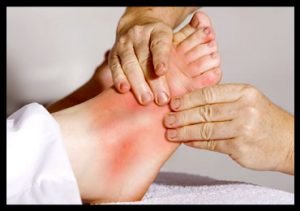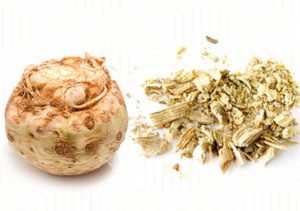- Kidney stones or ‘nephrolithiasis’ is a large buildup of minerals in the inner lining of the kidney
- These stones have a sharp crystalline structure and can sometimes be painful when these stones leave the body.
- Lack of water in the body or having an excessively acidic environment in the urine can be the leading cause of developing kidney stones.
- Having ample amount of water so that the urine is clear or colorless and supplementation of Vitamin B6 and Vitamin D can help in passing out the stone.
‘Agonizing’,‘Painful’,‘Unbearable’ – These are terms that we hear when a person develops the kidney stone. When the pain builds up, we are not even sure whether the pain is due to kidney stone. We tend to pop up a painkiller, get some relief and they tend to delay the treatment. It is our advice to get the professional help as soon as possible if you experience any unusual pain or discomfort.
Kidney stones are deposits of minerals and salts that are very hard and are formed inside the urinary tract. Kidney stones also known as nephrolithiasis or renal lithiasis can affect anywhere in the urinary tract i.e. from a kidney to the urinary bladder Kidney stones are due to the buildup of dissolved minerals that occur in the internal lining of the kidney.
Stones are made up of calcium oxalate mostly but there can be the combination of other compounds also. Kidney stones can grow up to the size of a golf ball with sharp, crystalline structure. Sometimes the stones can be so small that they can pass unnoticed through the urinary but sometimes the passing of stones can cause dreadful pain as they leave the body.
How Do You Know That You Have Kidney Stone?
Stones, if it remains in the kidney is painless and actually symptomless. But once the stones move towards the ureter, they start showing signs like –
- Vomiting and nausea
- Severe pain in the groin and/ or in the side
- Blood in the urine
- Frequent need for urination
- Burning sensation while urinating
- Very little urine.
- Fever in case of infection.
Kidney stones, if not treated fast and remains for a longer time in the body, can block the tube that connects the kidney to the bladder and hence obstructs the path of urine. A person who develops kidney stones is in the higher risk of developing kidney disorders.
Why Does Kidney Stone Occur?
The major cause of developing kidney stone is lack of water or fluid. Kidney stones are developed in people who drink less than the recommended 8 to 10 glasses of water every day. When we drink less amount of water, there is not enough fluid to dilute the uric acid which is a component of urine thus making the urine acidic.
A majorly acidic environment in urine increases the chances of kidney stone. Similarly, certain conditions like Crohn’s disease, infection of the urinary tract, renal tubular acidosis and Dent’s disease increases the chance of developing kidney stones.
Most people with kidney stones are males rather than females. People experiencing kidney stones are between ages of 30 to 50 years. Even a family history of kidney stone increases the chances of developing kidney stones. Even the person who has experienced kidney stone have increased chances of developing it again. Certain medications like commonly used to treat seizures or a migraine like topiramate (Topamax) can cause the increased likelihood of developing the kidney stone.
Even long-term intake of Vitamin D and calcium supplements increases the level of calcium thus contributing to kidney stones. Other risk factors for obesity, the diet high in protein and sodium, sedentary lifestyle and high blood pressure increases the chances of kidney stone.
How To Treat Kidney Stone?
If detected with the kidney stone, then the treatment of kidney stone is to manage the symptoms. Home treatment is possible if the person had the history of developing kidney stones and if the stone is small in size. If developing kidney stone for the first time, then you need to contact the doctor. If there is a need for hospitalization, then rehydration is carried out intravenously with the administration of anti-inflammatory drugs.
In certain cases, the urologist conducts the shock wave therapy called lithotripsy which breaks the stones and allows the pieces to pass through the urine. If the stones are large, then stones are removed surgically by inserting a thin tube in the urethra.
Diet for Kidney Stones
If you have been detected with kidney stones, there are various options in diet that can help in chucked out the kidney stone.
1. Drink Ample Amounts Of Water
- Staying hydrated is the best way to dilute the chemicals that form the stones. Drinking plenty of water is the best part of passing out the kidney stones and preventing from developing new stones. Water helps to flush out the toxins and also helps in moving the stones through the urinary tract. Enhancing the intake of water helps in passing out the stone.
- Go for drinking 12 glasses of water rather than the usual 8 glasses of water in order to avoid dehydration as dehydration is one of the risk factors for developing stones.
- Check the color of urine which should be pale yellow as dark yellow colored urine is a sign of dehydration. Even after the stone passes out, continue to drink about 8 to 12 glasses of water every day as a precautionary measure to prevent recurrence of developing the kidney stone.
2. Drinking Barley Water
- Regular consumption of barley water has been one of the best remedies for averting the kidney stone formation and also dissolving the existing ones. Regular consumption of barley water helps in creating a pressure in the bladder and enhances the elimination of stones easily.
- Barley water helps in maintaining the acid-base balance of the body thus making it alkaline and restricting the production of kidney stones. Barley water helps in nourishing the kidneys and preventing the urinary tract issues.
- Barley water helps in flushing out the toxins from the body through urine. Barley water provides enough Vitamin B6 that helps in the dissolution of calcium oxalate masses formed inside the kidney.
To prepare Barley water, the following procedure is done.-
- Take 1 tbsp. of barley seeds in a pan.
- Clean the seeds and pour about 1 liter of drinking water into the seeds.
- Allow the water to boil almost for 15 to 20 minutes on low flame.
- Cool the barley water and drink this water throughout the day.
- Barley water can be unpalatable for few, to make it palatable, squeeze lemon juice and add 1 tsp. of honey into the water.
3. Citrus Fruits
- Consuming citrus fruits like grapefruit, lemon or oranges can prevent the formation of calcium oxalate kidney stones. Citric acid present in fruits and vegetables bind with calcium in urine and reduces the formation of stone.
- Citric acid can also combine with calcium oxalate crystals and prevent them from getting larger. Citric acid helps to pass these crystals and avoid turning into larger stone. To up your citric acid intake, you can squeeze lime juice into drinking water and improve the fluid intake.
4. Have The Calcium That You Need
- Whenever you have been detected with having kidney stones the first thing that we do is to reduce the calcium intake. Getting too little calcium in the diet can cause oxalate levels to rise and cause kidney stones. Make sure you get calcium naturally from the diet rather than from the supplements.
- Good source of calcium includes milk, yogurt, cottage cheese, dark green leafy vegetables, legumes, and seeds. Make sure that you have foods high in Vitamin D every day as Vitamin D helps to absorb calcium in the diet. Many foods are fortified with Vitamin D, Vitamin D is also available in fatty fishes, egg yolk, and cheese.
5. Magnesium And Vitamin B6 Supplementation
- Supplementation with magnesium about 200 to 400 mg per day and Vitamin B 6 about 100mgs per day helps in reducing the kidney stone recurrence significantly. Studies have observed that supplementation of 300 mg of magnesium and 10 mg of Vitamin B 6 daily for the long term have reduced the occurrence of kidney stones from 1.3 stones per year to 0.1 stones per year.
- Yes, kidney stones can be painful and do not cause much of damage if recognized on time. Considering the situation, you may need nothing more than drinking ample amounts of fluids and proper medications. However, if the stone is too big and are lodged in the urinary tract and are associated with infection or other complications then surgery is required. Hence immediate supervision by a health professional is very much mandatory if detected with kidney stones.
Frequently Asked Questions About Kidney Stones
1. What foods need to be avoided in case of kidney stone?
If you have a stone of calcium oxalate, you can avoid foods to reduce the oxalate levels in the urine like nut and nut products, wheat bran, rhubarb, and spinach. Your chances of developing kidney stone increase with an increase in sodium intake. Hence high sodium foods in canned foods or fast foods.
Avoid eating animal protein like beef, shellfish, eggs, pork, and chicken as they contribute towards developing kidney stones. However, that doesn’t mean we need to avoid protein totally. You can consider replacing meat and animal foods with plant foods like beans, lentils or dried peas that are rich in protein but low in oxalate.
2. I have a uric acid stone. What type of diet needs to be followed?
Uric acid stone is another kind of stone. Consumption of animal food like red meat and shellfish results in excess production of uric acid that leads to higher concentration of uric acid. This uric acid accumulates as crystals in the joints or even as stones in the kidney. Eating less of animal protein foods and more of plant-based foods reduces the urine acidity and decreases the chances of kidney stone formation.
Maintain a healthy and balanced diet consisting of vegetables and fruits, whole grains and low-fat dairy products. Avoid alcohol intake as it increases the levels of uric acid in the blood. Have ample amount of water and maintain a healthy lifestyle as it reduces the chances of developing gout.
Read more – How To Keep Your Kidneys Healthy?


















